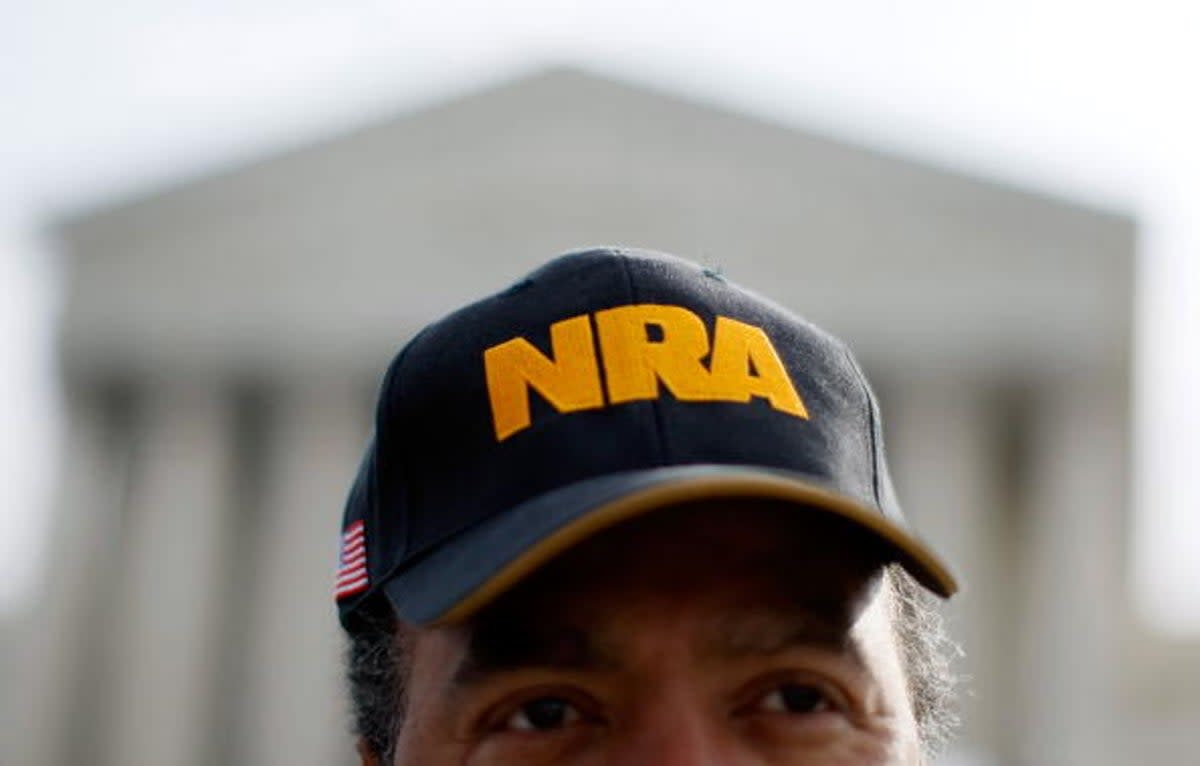ACLU to defend NRA in unusual Supreme Court case

In their pursuit to defend individual freedoms and fight against government abuse, the American Civil Liberties Union (ACLU) will be at the Supreme Court today to argue that a New York official violated the First Amendment when she issued “threatening” guidance to companies by advising them to cease conducting business with a nonprofit organisation.
On the surface, it seems uneventful that the ACLU would take up a case concerning First Amendment freedoms and government censorship.
But the nonprofit organisation the ACLU is defending happens to be the National Rifle Association (NRA), a gun rights advocacy group often accused of failing to support meaningful gun safety legislation.
The central issue in NRA v Vullo is not about the Second Amendment but the First Amendment – specifically whether government officials are permitted to threaten regulated entities with adverse action if they do business with a controversial speaker.
The ACLU and NRA’s collaboration is eyebrow-raising for many. But much like the necessary teamwork of Clarice Starling and Hannibal Lecter to capture a homicidal maniac, the two organisations believe that teaming up with an unusual partner is necessary for the greater good.
“While the ACLU stands in stark opposition to the NRA on many issues, it is representing the group to safeguard the First Amendment rights of all advocacy organizations,” the ACLU wrote in a press release.

In December, the ACLU agreed to represent the NRA at the Supreme Court after the gun advocacy nonprofit asked them to.
The case being argued dates back to 2018 when Maria Vullo, the former head of the New York State Department of Financial Services (DFS), issued guidance to banks and insurance companies about conducting business with the NRA in the wake of the Parkland high school shooting which left 17 people – including 14 children – dead.
At the time, the DFS was investigating Carry Guard, an NRA-endorsed insurance programme which offered to pay for civil and criminal legal fees in cases where a gun owner shot another person in self-defense.
DFS was determining whether Carry Guard was permitted under New York law, which generally does not allow insurance products to insure a person for intentional criminal acts. Three insurers later ceased to underwrite the Carry Guard policy after reaching settlements and entering consent orders.
But after the deadly high school shooting, and shortly after the Carry Guard policy investigation, Ms Vullo issued guidance, warning financial institutions of “reputational risks” and encouraging them to “review any relationships” they had with the NRA or other gun advocacy organisations.
The NRA sued, claiming Ms Vullo’s guidance was threatening and violated the First Amendment.
A district court sided with the NRA but the Second Circuit Court of Appeals sided with Ms Vullo, prompting the NRA to bring the case to the Supreme Court and enlist the help of the ACLU.
“The NRA might be thought of as the 800-pound gorilla on the Second Amendment,” William Brewer III, a lawyer whose firm represents the NRA, told the New York Times. “Clearly the ACLU is the 800-pound gorilla on the First Amendment.”
For decades, the ACLU has vigorously defended civil liberties and rights awarded under the US Constitution by building a network of volunteer attorneys to work alongside the organisation’s staff attorneys to take on thousands of cases each year. Those cases often concern violations of racial or gender equality.
“[T]he ACLU of today continues to fight government abuse and to vigorously defend individual freedoms including speech and religion, a woman’s right to choose, the right to due process, citizens’ rights to privacy and much more,” the ACLU says on its website. But often, the group intervenes in lawsuits about First Amendment infringements, “even when the cause is unpopular, and sometimes when nobody else will.”
In taking the NRA’s case, the ACLU has faced backlash – even by parts of its own organisation.
The New York Civil Liberties Union (NYCLU) issued a statement “dissenting” from the ACLU’s decision, saying the NRA did not need to help of the ACLU and that “representing the NRA directly risks enormous harm to the clients and communities the ACLU and NYCLU work with and serve.”
But the ACLU is no stranger to controversial cases and maintains that it will continue defending the First Amendment to everyone, not just those whose speech they agree with.


